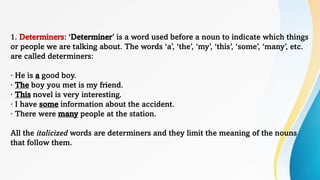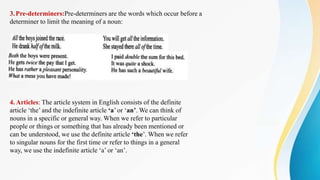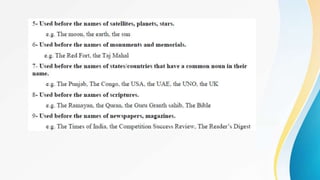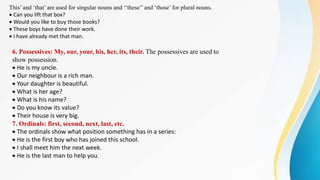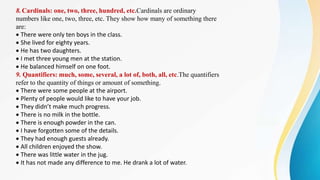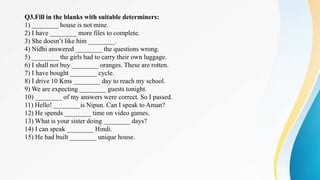Determiners are words used before nouns that indicate which things or people are being referred to. There are several types of determiners including articles, demonstratives, possessives, ordinals, cardinals, quantifiers, distributives, and interrogatives. Determiners help limit or identify the meaning of associated nouns. Common examples are words like "a", "the", "my", "some", and "many". The document then provides examples and explanations of the different types of determiners.

